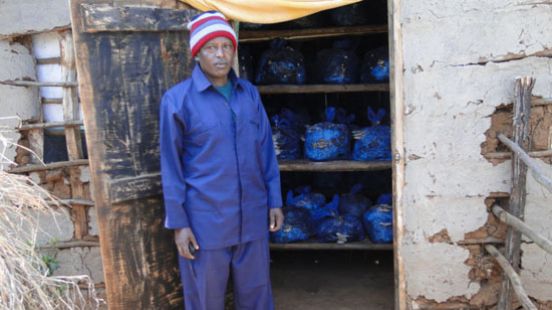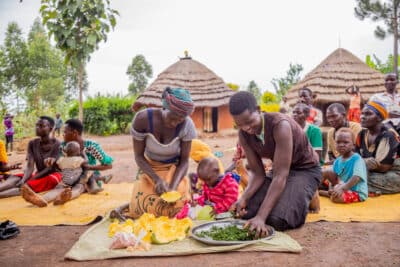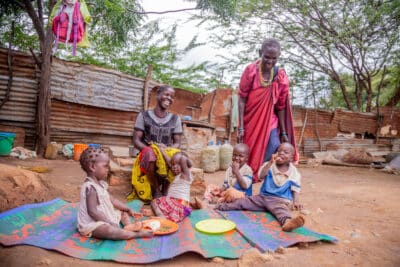News
10 July 2013
Mushrooming incomes for Tanzanian farmers

Photo: Ibrahim at his mushroom farm
Ibrahim Dahaye is one of over 200 smallholder farmers in the Babati district of the Nou Forest in northern Tanzania benefitting from Farm Africa training in mushroom growing and marketing.
Before he began mushroom growing in 2010, he had to sell part of his annual harvest of maize and beans to meet household costs. As a result, he was left with insufficient food to feed his family for the whole year. However, Ibrahim has been so successful with his mushroom growing sideline that he has managed to double his output each year.
The income from the sale of dried mushrooms means he no longer has to sell any of his family’s food supply to generate household income. Ibrahim is now able to feed his family and meet schooling costs for his children, “I can buy them school uniforms and exercise books.”
An attractive sideline
Small-scale mushroom farming is an attractive sideline for farmers like Ibrahim as it requires little capital investment or access to land. The mushrooms can be grown in temporary shelters using agricultural waste, and require little maintenance. This leaves farmers free to continue cultivating their existing food crops.
Ibrahim has been so successful that the additional income he has made from mushrooms has also provided enough for him to build a second house. And he has taken on the role of lead farmer, and is now sharing his knowledge and expertise with other local farmers. He is currently training five other farmers in mushroom farming techniques, as part of an ongoing initiative to spread the benefits of mushroom growing through the region.
If you want to support this and our other projects, please make a donation to Farm Africa.




